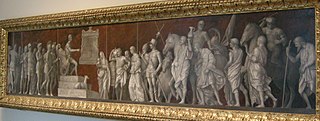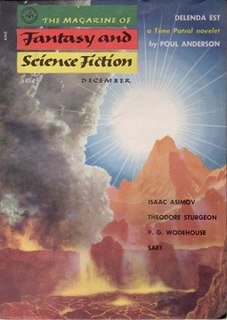 W
WAfrica is an epic poem in Latin hexameters by the 14th-century Italian poet Petrarch. It tells the story of the Second Punic War, in which the Carthaginian general Hannibal invaded Italy, but Roman forces were eventually victorious after an invasion of north Africa led by Publius Cornelius Scipio Africanus, the epic poem's hero.
 W
WCabiria is a 1914 Italian epic silent film, directed by Giovanni Pastrone and shot in Turin. The film is set in ancient Sicily, Carthage, and Cirta during the period of the Second Punic War. It follows a melodramatic main plot about an abducted little girl, Cabiria, and features an eruption of Mt. Etna, heinous religious rituals in Carthage, the alpine trek of Hannibal, Archimedes' defeat of the Roman fleet at the Siege of Syracuse and Scipio maneuvering in North Africa. Apart from being a classic on its own terms, the film is also notable for being the first film in which the long-running film character Maciste makes his debut. According to Martin Scorsese, in this work Pastrone invented the epic movie and deserves credit for many of the innovations often attributed to D.W. Griffith and Cecil B. DeMille. Among those was the extensive use of a moving camera, thus freeing the feature-length narrative film from "static gaze".
 W
WThe Cleopatras was a 1983 BBC Television eight-part historical drama serial. Written by Philip Mackie, it is set in Ancient Egypt during the latter part of the Ptolemaic Dynasty with an emphasis on the Cleopatras. Intended to be the I, Claudius of the 1980s, The Cleopatras met with a decidedly mixed critical reaction. It was regarded and portrayed as a gaudy farce.
 W
WThe Continence of Scipio or An Episode from the Life of Publius Cornelius Scipio is a painting in oils on canvas by Giovanni Bellini, dating to 1507–08 and now in the National Gallery of Art in Washington, D.C..
 W
W"Delenda Est" is a science fiction short story by American writer Poul Anderson, part of his Time Patrol series. It was originally published in The Magazine of Fantasy and Science Fiction of December 1955. It was first reprinted in the first edition of the "Time Patrol" series collection Guardians of Time. It was also a selection in the alternate history anthology Worlds of Maybe edited by Robert Silverberg.
 W
WThe Divine Comedy by Dante Alighieri is a long allegorical poem in three parts : the Inferno (Hell), Purgatorio (Purgatory), and Paradiso (Paradise), and 100 cantos, with the Inferno having 34, Purgatorio having 33, and Paradiso having 33 cantos. Set at Easter 1300, the poem describes the living poet's journey through hell, purgatory, and paradise.
 W
WDrifters is a Japanese manga series written and illustrated by Kouta Hirano. The manga started serialization in Shōnen Gahosha's magazine, Young King Ours, on April 30, 2009. It centers on various historical figures summoned to an unknown world where their skills and techniques are needed by magicians in order to save their world from total destruction. An anime television adaptation aired between October 7, 2016 and December 23, 2016. A second season of the anime series has been teased at the end of the last episode, but no specific date was given outside 20XX.
 W
WThe Continence of Scipio is a circa 1653 painting by Dutch artist Gerbrand van den Eeckhout. It shows the continence of Scipio and is now in the collection of the Rijksmuseum in Amsterdam.
 W
WJupiter's Darling is a 1955 American Technicolor musical romance film released by MGM and directed by George Sidney filmed in CinemaScope. It starred Esther Williams as the Roman woman Amytis, Howard Keel as Hannibal, the Carthaginian military commander and George Sanders as Fabius Maximus, Amytis's fiancé. In the film, Amytis helps Hannibal swim the Tiber River to take a closer look at Rome's fortifications.
 W
WScipione l'africano (1937) — in English Scipio Africanus: The Defeat of Hannibal — is an Italian historical film that focuses on Publius Cornelius Scipio from the time of his election as dictator until his defeat of Hannibal at the Battle of Zama in 202 BC. It was directed by Carmine Gallone and stars Annibale Ninchi and Camillo Pilotto. The film was funded by Benito Mussolini and was released in 1937, serving as propaganda for the fascist ambitions to invade North Africa.
 W
WScipio the African is a 1971 Italian comedy film directed by Luigi Magni.
 W
WScipione - or Publio Cornelio Scipione - is an opera seria in three acts, with music composed by George Frideric Handel for the Royal Academy of Music in 1726. The librettist was Paolo Antonio Rolli. Handel composed Scipione whilst in the middle of writing Alessandro. It was based upon the life of Roman General Scipio Africanus. Its slow march is the regimental march of the Grenadier Guards and is played at London Metropolitan police passing out ceremonies.